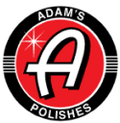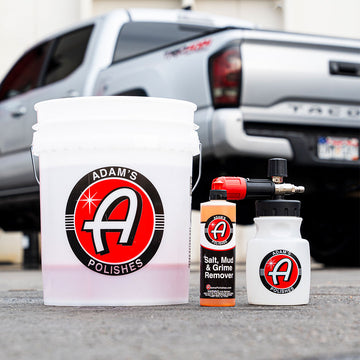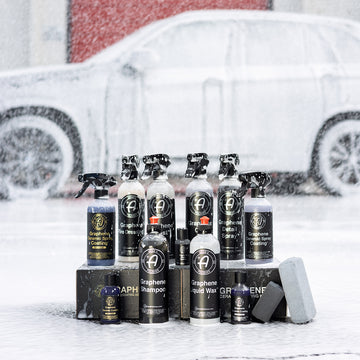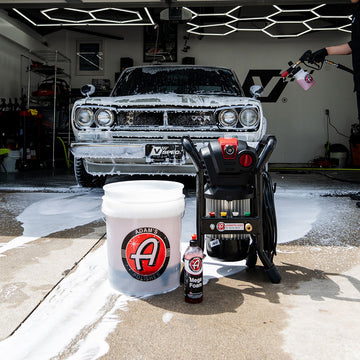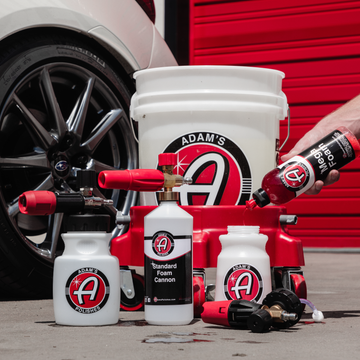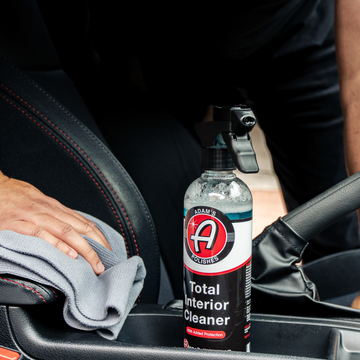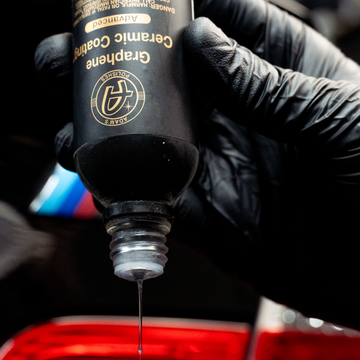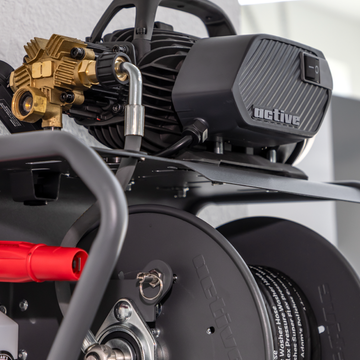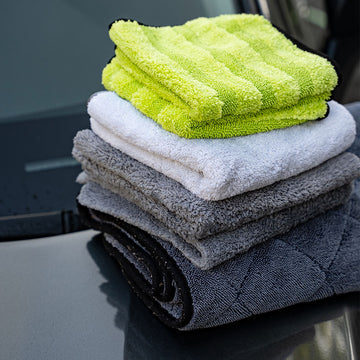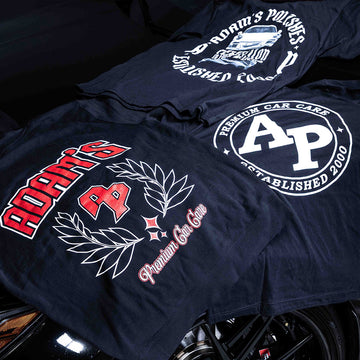We’ve said it many times before, and we’ll continue to say it, your vehicle is a very important investment in your life, so you want to make sure to keep it protected and looking excellent for years to come. Using the wrong towels on your vehicle’s paint and other delicate surfaces can cause more harm than good - creating unsightly swirls and scratches. If you’re a shine freak like us, you’ve spent countless hours polishing the paint to near-perfection, so “cheaping out” on towels on any part of the detailing process should not be a consideration.
Stitched Tags and Heat-Seared Edges Make Your Paint Cry
Many of the microfiber towels that you can purchase in bulk packs from retail stores or large wholesale stores are cheap for a reason, their quality is low. These towels are usually multiple colors, thin, and feel almost rough and clingy. They will grab onto your fingers as you pick up the towel, due to the lower GSM (Grams per Square Meter) fiber count and lower percentage of polyamide compared to polyester (80/20). Some of these towels have a GSM so low that they leave light marring and faint scratches in soft clear coats. Many of these towels will have stitched tags made of nylon or some other sharp material, and you will notice these tags are not very flexible, which is a perfect combination to instantly scratch paint, clear coat, piano black plastic trim pieces, and more. Even if you rip the tag out of the towel, it will still usually feel rough at this area, and it will weaken the stitching of the towel. These low-quality towels will feel even more rough over time, especially after washing them.
These bulk towels also have heat-seared edges cut by machines that melt the edges and corners of the towels. This keeps the towels from fraying apart, but these melted edges are sometimes even sharper than the sewn-in tags, so they can cause scratching when wiping away compound, polish, or wax residue, or when using them for a maintenance wipe with Detail Spray for example. These types of towels are good for very dirty jobs like cleaning door jambs, wiping exhaust tips, checking your oil, or wiping up spills and then disposing of them, so we do not recommend them for paint. Unlike these cheap bulk towel options, at Adam’s Polishes we source only high-quality, premium microfiber from South Korea, so while they are a bit more costly, it is worth the peace of mind when using them. Our towels are a higher-quality 70/30 blend, have no melted edges, and have zero tags. You will instantly feel the difference when picking up one of our plush Single Soft Towels or Borderless Grey Towels to wipe down your car, and feel at-ease knowing that you are using premium towels to go along with the premium chemicals that make your ride stand out from the crowd.
Beach Towels, Chamois, and Cotton Bath Towels vs. Microfiber Drying Towels
Having the right products and process to dry your vehicle after washing are just as important as having plush microfiber towels on hand when polishing, ceramic coating, or quick detailing your car. Improper washing and drying are two of the main causes of swirl marks and scratches in a vehicle’s finish. It may shock some of you, but there are many people that still think it’s perfectly fine to dry your car with a cotton bath towel or beach towel. Beach towels and cotton towels are fine for drying off your skin after a swim or shower, but they are not soft enough for vehicle paint and can quickly swirl up a nice finish. They also do not absorb water anywhere near as efficient as a proper microfiber drying towel. Much like the cheap bulk-buy microfiber towel bundles discussed above, beach towels and cotton towels usually have sharp nylon tags that will further aid in scratching your vehicle.
Chamois are a less than ideal vehicle drying solution as well. Real leather chamois absorb significant amounts of water and are easy to wring out, but their very thin design can cause issues. Since chamois and synthetic chamois are very thin, if they pick up a small amount of grit, like a particle of dirt or sand, the chamois will simply drag this particle across the painted surface, usually resulting in long, faint scratches or worse. Since synthetic chamois are not as flexible as a towel, they often leave droplets of water in body contours, panel gaps, etc. Real leather chamois dry out by design, but can also begin to develop an unpleasant odor that you may not want lingering in your garage or laundry room.
The benefits of premium microfiber drying towels like our Ultra Plush Drying Towel or Jumbo Plush Drying Towel, are that they are incredibly soft once they have even a small amount of water in them. The long, twist-loop fibers of these towels will reach down into all of the nooks and crannies, body contours, and cracks and crevices of various exterior surfaces, absorbing every drop of water. These long fibers also help in pulling any potential dirt particles up into the towel, rather than dragging them across the surface like a chamois. Premium microfiber drying towels hold very large amounts of water and are capable of drying entire midsize sedans without wringing them out - in the case of our Jumbo Plush Drying Towel, it holds over one gallon (9 pounds) of water, making it a very safe option to dry large trucks and SUV’s in a more efficient manner.
Car Dusters - Why You Should Avoid Them
It’s nearly a given that at every big car show or event we attend, we will have at least one person ask us “Where are your car dusters?” and they proceed to get upset when we tell them that we do not sell them because they do more harm than good to your car’s paint. Adam often tells them “Car dusters are a great way for us to sell machine polishers!” We then explain to the them that car dusters can leave very long faint scratches up and down the entire hood, fenders, roof, and trunk lid of a vehicle, as they build up more and more dust and dirt particles that stick right onto the edge of the wax tips of the feather duster. You then drag dirt particles over the surface as you pick up the rest of the dust from a panel, with no easy way to clean out the car duster between each section or panel. This same issue can occur with some car covers if you pull them off of a car rather than lift the cover upward off of the car. Then you will need to machine polish or possibly even compound the surface to remove these scratches.
The much safer alternative to using a car duster to remove light dust from your car at a cruise, show, or in your garage is using the correct chemical cleaning solution with a unique type of microfiber towel made for this task. Our Waterless Wash and waffle-weave Waterless Wash Towels were designed specifically with this purpose in mind. Waterless Wash is our most complex chemical formula out of every chemical that we offer. It uses special lubricating agents, cleaners, and polymers that aid in loosening and lifting dirt and dust particles from a surface, that, when combined with the channels of the premium waffle-weave microfiber towel, pull dirt from the surface up into the hundreds of tiny “pockets” in the towel.
The Waterless Wash Towels are a generous 16”x24” size, which allows you to fold the towel into 6 or 8 working “sides” per towel. After spraying down a panel or section with Waterless Wash, you gently wipe one side of the towel over the area a few times, until that side becomes soiled with dust and dirt. Continue to flip the towel to new fresh sides until all sides have been saturated with cleaner and dirt, then set aside that towel to be washed. You can then follow up with a second dry Waterless Wash Towel, or a Single Soft Towel or Borderless Grey Towel if you want to be even more delicate, to wipe away any excess residue from the Waterless Wash on the now clean surface. Typically it may take 6 or more Waterless Wash Towels to clean an entire vehicle if it has heavy dust build-up or light dirt; however, once you do the initial cleaning, it will be much easier to “dust off” main areas with Waterless Wash throughout the rest of the day at the show. The benefit of Waterless Wash is that you do not need to worry about it building up if you use it frequently, since it does not offer any protection.
